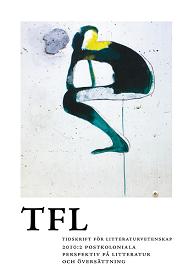Barnbiblioteket Sagas Selim och Kalulu
Afrika som sagoland och civilisering som metafor för mognad
DOI:
https://doi.org/10.54797/tfl.v40i2.11956Nyckelord:
colonialism, Africa and imagination, children’s literature, pedagogy, translation, representationAbstract
Selim och Kalulu: Africa as Imaginary Place and Object of Knowledge in the Swedish Translation of Henry Stanley’s Children’s Book My Kalulu.
This article focuses on the dual status of Africa in a Swedish translation of British-American explorer Henry M. Stanley’s children’s book My Kalulu (1973). In Stanley’s original as well as in Henrik Wranér’s translation, Selim och Kalulu (1907), Africa and Africans are coded as objects of knowledge – a place and people that the reader gets to learn about. At the same time, Africa is given the status of a setting for children’s stories – a place that is opened up for the reader’s imagination. The African, likewise, is presented to the reading child as a literary character that is radically other. This dual status allows for an analogical reading of the text: The »ascent« of one of the two main characters, an African youth called Kalulu, from savagery towards civilization is possible to read, via his dual status, as an analogy for the Swedish child’s passage from childhood to adulthood.
This article discusses certain pedagogical debates about children’s literature that took place in the context in which Selim och Kalulu was published. In order to demonstrate the dual status that the African is endowed with already in the original text, it also traces the story about Kalulu in the preface to My Kalulu and Stanley’s travel writing. The character Kalulu was partly modelled on a child that Stanley employed as a carrier on one of his expeditions and brought to Europe and who eventually died when Stanley attempted to sail down the Congo River on a subsequent expedition. By means of these readings, the author of this article attempts to place the text into a tradition of Swedish and European children’s literature about Africa and show on some of the ideological and pedagogical functions of this literature.
Nedladdningar
Downloads
Publicerad
Referera så här
Nummer
Sektion
Licens
Författaren/författarna behåller copyright till verket






